About the Competition
THE INTERNATIONAL OBOE COMPETITION OF JAPAN in Tokyo

“THE INTERNATIONAL OBOE COMPETITION OF JAPAN” began with an idea by the former chairman of the Sony Music Foundation, Norio Ohga (1930–2011), who was intrigued by the innocent and comforting sound of the oboe and advocated its importance as the instrument that could determine the quality of an entire orchestra. The Sony Music Foundation has been presenting the Competition every three years since 1985. The 13th Competition has been postponed due to the COVID-19 pandemic and will be held anew in 2023.
It aims to promote the true artistic value of the oboe, as well as to contribute to the development of music culture with an international perspective through discovering and fostering talented musicians and helping them expand their scope of activities in Japan and abroad. It has established a reputation as a unique international Competition solely dedicated to the oboe, with past winners going on to become international music figures who have obtained principal and solo positions in world-renowned orchestras. The Competition is a member of the World Federation of International Music Competitions
Michinori MIZUNO
Chairman
THE 13th INTERNATIONAL OBOE COMPETITION OF JAPAN 2023 in Tokyo Committee
(Chairman of Sony Music Foundation)
Schedule / Venue
THE 13th INTERNATIONAL OBOE COMPETITION OF JAPAN 2023 in Tokyo
Dates
|
Period for application *Application must include the video for preliminary screening |
2023 February 15(Wed) - March 14(Tue)24(Fri) [Must arrive by this date, Central European time] *We have extended our application (with video) submission deadline as we realized that our rather insufficient description in this Participation Requirements document had caused unwanted misunderstanding and confusion as to the deadline date of the Video submission for the Preliminary Screening (Pre-screening). <Updated on Feb. 22> |
|---|---|
| Preliminary Screening by Jury (with videos) | April-May 2023(Closed to the public) |
| First Round (with videos) | Deadline for video submission:August 8, 2023(Tue.) (tbc) |
| Registration | September 30, 2023(Sat.) |
| Second Round | October 3(Tue.), 5(Thu.), 6(Fri.), 2023 at Musashino Civic Cultural Hall |
| Final Round and Award Presentation Ceremony | October 8, 2023(Sun.) at Musashino Civic Cultural Hall |
| Prize Winners and Jury Concert | October 9, 2023(Mon.) at Musashino Civic Cultural Hall |
Venue
Musashino Civic Cultural Hall
3-9-11 Nakacho, Musashino City, Tokyo 180-0006 Japan
https://www.musashino.or.jp/bunka/
Second Round: Small Hall
Final Round/ Award Presentation Ceremony/ Prize Winners & Jury Concert: Large Hall
Committees
Committees of “The 13th International Oboe Competition of Japan 2023 in Tokyo”
Chairman
Michinori MIZUNO (Chairman, Sony Music Foundation)
Management Committee
Shigenobu KARUBE (Secretary General, Secretariat / Executive Managing Director, Sony Music Foundation)
Fumihiko KANAGAWA (Deputy Secretary General, Secretariat / Managing Director, Sony Music Foundation)
Ken-ichi FURUBE
Isao TSUJI
Masaru YOSHIDA
Review Committee
Jury Chairman
Hansjörg SCHELLENBERGER (Oboist / Conductor / Professor, Reina Sofía School of Music in Madrid)
Jury members
Ken-ichi FURUBE (Specially Appointed Principal Oboist, New Japan Philharmonic / Professor, Tokyo College of Music)
Gordon HUNT (Principal Oboist, London Chamber Orchestra / Former Principal Oboist,Philharmonia Orchestra / Conductor)
Ramón Ortega QUERO (Principal Oboist, Bavarian Radio Symphony Orchestra)
Dwight PARRY (Principal Oboist, Cincinnati Symphony Orchestra)
Isao TSUJI (Oboist / Professor and Assistant to Dean, Senzoku Gakuen College of Music)
Masaru YOSHIDA (Principal Bassoonist, Yomiuri Nippon Symphony Orchestra, Tokyo)
(in alphabetical order)
Secretariat
Secretariat of the “13th INTERNATIONAL OBOE COMPETITION OF JAPAN 2023 in Tokyo”
c/o Sony Music Foundation
Address: SME-Rokubancho Bldg. 4-5, Rokubancho, Chiyoda-ku, Tokyo 102-8353 JAPAN
Phone: +81-(0)3-3515-5261 (10:00 - 18:00 Japan time, on weekdays)
E–mail: smf@sonymusic.co.jp
Please note: Any inquiries from abroad will only be accepted via e‐mail.
Required Repertoire
The Secretariat will designate the Required Repertoire for the Preliminary Screening and the First, Second, and Final Rounds, respectively.
Throughout the Competition period, all instruments used for accompaniment (piano, harpsichord, orchestra, chamber music) will be tuned to A=442Hz.
Preliminary Screening (with video)
The Participant must record in audio and video the performance of the required repertoire below:
- A. Ponchielli: Capriccio
[Publisher: Not designated]
First Round (with video)
The Contestant must record in audio and video the performance of the two pieces below (performing order of the pieces is optional)
- G. Ph. Telemann: 12 Fantasien für Querflöte ohne baß -Ⅺ. Fantasie G-dur TWV40:12
[With all repeats]
[Publisher: Bärenreiter/ Henle] - P. Hindemith: Sonate für Oboe und Klavier
[Publisher: Schott]
Second Round (Public review in Japan)
The Contestant must choose one piece each from groups <A>, <B>, and <C>, which makes a total of three pieces, to constitute a recital of about 45~55 minutes in length. (From entering the stage to leaving the stage must be 60 minutes at the most.) Up to one piece can be selected for the performance without accompaniment. (performing order of the pieces is optional)
<A>
- J. S. Bach: Sonate g-moll BWV1030b
[No repeats for the 3rd Movement]
[Publisher: Peters] - J. S. Bach: Partita a-moll für Flöte (oboe) solo BWV1013 version in g-moll
Both versions in a-minor and in g-minor are acceptable.
[1st repeats only in all movements]
[Recommended editions
-for g-minor-version: Karthause-Schmülling (Revised by Birgit Welpmann) / Alexander Gagarinov* (IMSLP=International Music Score Library Project) ]
-for a-minor preferably: Henle / Bärenreiter]
* Make sure to correct Bach’s mistakes when you perform.
Do not correct „Errors“ of Bach (in Sarabande and Bourree anglaise) because those might not be from Bach. But any selected version will be accepted. - F. Couperin: “Les Goûts réunis” ou “Nouveaux Concerts” with Harpsichord concert No.7 or No.9 or No.11
[Accompanied by the harpsichord, repeats optional]
[Publisher: Fuzeau]
<B>
- A. Doráti: Duo concertante
[Publisher: Boosey & Hawkes] - D. Milhaud: Sonatine pour Hautbois et Piano op.337
[Publisher: Durand] - N. Skalkottas: Concertino für oboe solo und Klavierbegleitung
[Publisher: Margun] - A. Pasculli: Fantasia sull’opera “Poliuto”di Donizetti
[Publisher: Musica Rara (Breitkopf & Härtel) ] - A. Pasculli: Gran Concerto su temi dall’opera “I vespri siciliani”di Verdi
[Publisher: Musica Rara (Breitkopf & Härtel) ] - G. Silvestrini: 6 Etudes pour hautbois No.1,2,5,6
[Publisher: Delatour] - T. Hosokawa: Spell Song for oboe
Commissioned by Sony Music Foundation for “THE 11th INTERNATIONAL OBOE COMPETITION OF JAPAN 2015 in Karuizawa”
[Publisher: Schott]
<C>
- W. A. Mozart: Oboe Concerto in C major, K.314 (285d)
[Should be performed by memory. Accompanied by the piano.]
[Publisher: Breitkopf & Härtel (Revised by Henrik Wiese) / Henle (Revised by Ingo Goritzki) / the latest edition of Bärenreiter (Revised by Frank de Bruine)* ]
* You must perform the “Ossia Version” if you are using this edition. - B. Martinů: Concerto pour hautbois avec petit orchestre, H.353
[Publisher: Max Eschig(Revised by M. Bourgue & G. Porat)] - R. Vaughan-Williams: Oboe Concerto for oboe and strings in a minor
[Publisher: Not designated]
Final Round (Public reviewing in Japan)
The Contestant must perform the following two pieces:
- W. A. Mozart: Quartet in F major for Oboe, Violin, Viola, and Violoncello K.370 (368b)
[Accompanied by strings, with the first repeat]
[Publisher: Bärenreiter / Henle / Fuzeau] - R. Strauss: Concerto in D major for Oboe and small Orchestra AV144
[Should be performed by memory. Accompanied by the orchestra.]
[Publisher: Henle]
Prizes and Awards
First Prize [Ohga Award]
Certificate and cash prize of JPY 1,300,000 / trophy
Second Prize
Certificate and cash prize of JPY 700,000
Third Prize
Certificate and cash prize of JPY 300,000
Honorable Mention
Certificate / cash prize of JPY 100,000
Presented to all finalists other than the winners of the top three prizes.
Audience Award
Certificate
Encouragement Award
Certificate
Presented to one contestant with Japanese citizenship, selected by the jury.
If no one is deemed qualified, the relevant place will be left vacant.
The winner will be given an opportunity to perform in a concert organized by Sony Music Foundation.
Sony Award
Commemorative gift
Presented by Sony Group Corporation to all finalists.
- If there are two or more winners for the First, Second, and/or Third Prizes, the Committee will revise the amount of the cash prize at its own discretion.
If no one is deemed qualified, the relevant place will be left vacant. - Other prizes and awards, such as a Special Award, may be offered.
- The amounts of cash prizes are inclusive of taxes according to the tax laws of Japan.
Jury
Jury Chairman
-
Hansjörg SCHELLENBERGER
Oboist / Conductor / Professor, Reina Sofía School of Music in Madrid
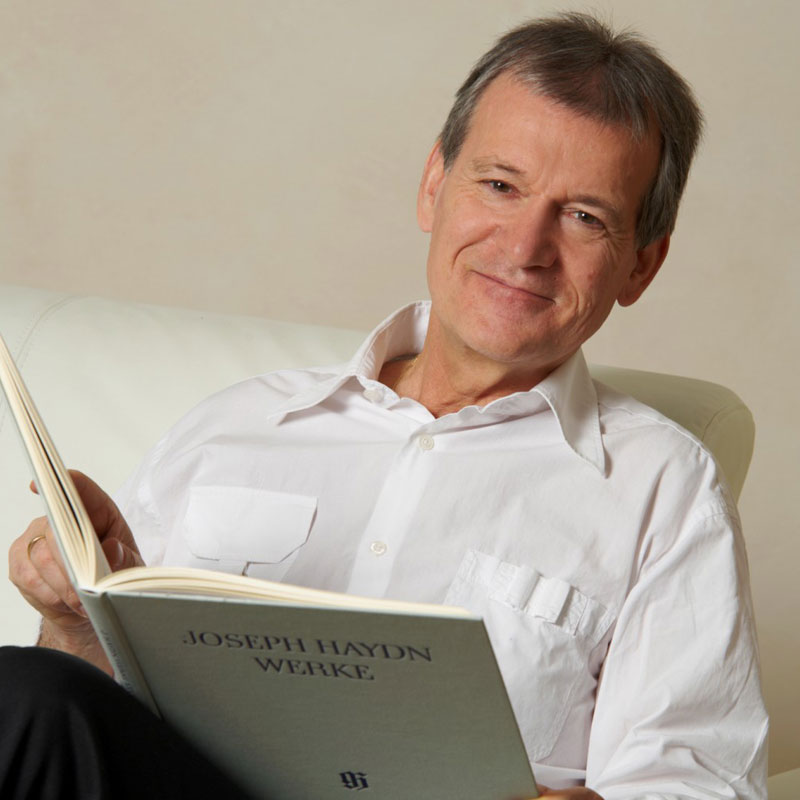
- Show Profile
-
Hansjörg Schellenberger was born in 1948. Winning prizes in major music competitions such as the ARD International Music Competition in 1972, he played as oboist of the WDR Symphony Orchestra Cologne since 1971 and served as solo oboist 1975-1980. In 1977, he joined Berlin Philharmonic Orchestra as substitute under Herbert von Karajan and then served as solo oboist 1980-2001. After his orchestra stint, he has been active as conductor, soloist, and educator.
As soloist, he has performed with noted conductors such as Karajan, Giulini, Abbado, Muti, Levine, etc. As chamber musician, he has developed diverse activities mainly with Ensemble Wien-Berlin. He founded Haydn Ensemble Berlin in 1991 and served as music director.
He launched a full-fledged conducting career in 1994, and has been invited to conduct orchestras in Europe and across the world. In 2012 and 2016, he toured Japan leading Camerata Salzburg, winning high acclaim. He has been chief conductor of the Okayama Philharmonic Orchestra since 2013, and since 2000 he has been the professor at “Escuela Superior de Musica Reina Sofia” in Madrid.
He founded his own CD-production company with the label “Companella Music” in 1997 and released more than 20 titles, many of which are with his collegues of Berlin Philharmonic.
He has served as jury chairman of the International Oboe Competition of Japan since 1994.
Jury
-
Ken-ichi FURUBE
Specially Appointed Principal Oboist, New Japan Philharmonic / Professor, Tokyo College of Music
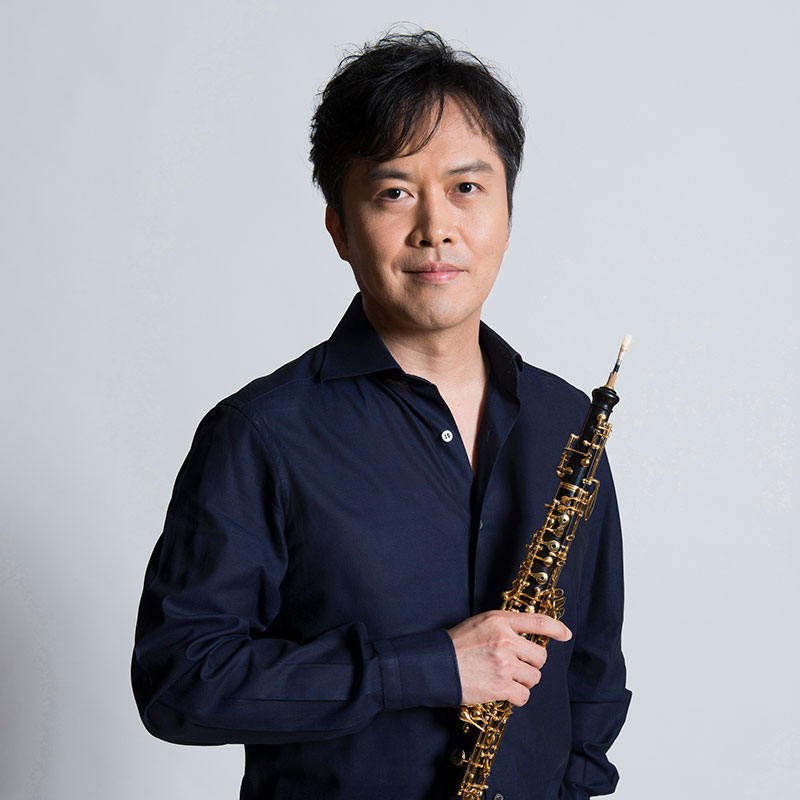
© Masanori Doi
- Show Profile
-
While studying at Tokyo University of the Arts, Ken-ichi Furube was recognized by Seiji Ozawa and appointed principal oboist with the New Japan Philharmonic. He further studied under Günther Passin at the graduate school of the University of Music and Performing Arts Munich. As a guest principal player, Mr. Furube has performed with the North German Radio Symphony Orchestra, the Deutsches Symphonie-Orchester Berlin, and the Berlin Radio Symphony Orchestra. As a soloist, he has performed with various orchestras in Japan and abroad, and with world-class artists as Emmanuel Pahud, Paul Meyer, Rainer Küchl, Akiko Suwanai, and Daishin Kashimoto. His collaborations transcend genres, as he has performed concerts with Daisuke Suzuki, Kazumi Watanabe, and Makoto Ozone to name a few. He has participated music festivals including La Folle Journée au Japon, the Seiji Ozawa Matsumoto Festival, the Miyazaki International Music Festival, the Kiso Music Festival, and Le Pont International Music Festival Ako & Himeji. Also an active conductor since age 15, Mr. Furube has conducted the Shizuoka Symphony Orchestra, the Siena Wind Orchestra, and the Tokyo Kosei Wind Orchestra, etc. He currently serves as a professor at Tokyo College of Music, a guest professor at Sapporo Otani University, special instructor at Soai University, and a special performer at HPAC. He is the jury member of the International Oboe Competition of Japan in Tokyo, The Music Competition of Japan, the Muri Competition (Switzerland), etc. He was the first oboist to win the Idemitsu Music Award in 1999.
-
Gordon HUNT
Principal Oboist, London Chamber Orchestra / Former Principal Oboist,Philharmonia Orchestra / Conductor
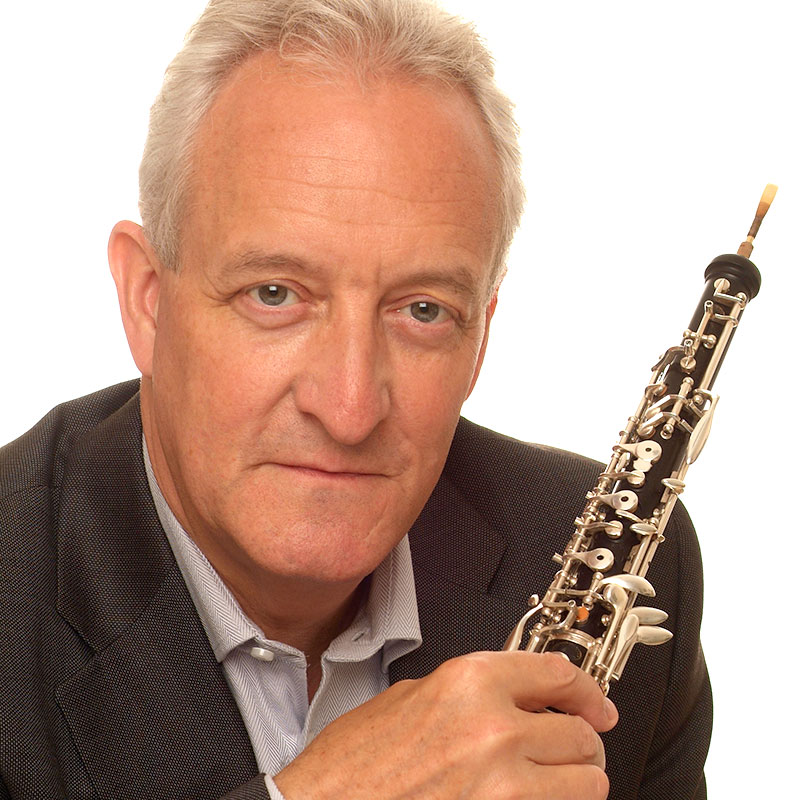
© Chris Fower
- Show Profile
-
Gordon Hunt was born in London and studied with Terence MacDonagh. He performs throughout the world as soloist and conductor, directs master classes, and plays with renowned chamber ensembles. He has a distinguished orchestral career as Principal Oboe of the London Chamber and Oxford Philharmonic Orchestras, and formerly for many years of the Philharmonia and London Philharmonic Orchestras. He is also Principal Oboe of the World Orchestra for Peace. He plays an XM oboe by Howarth of London.
Regarded as one of the world's leading oboists, he has appeared as soloist with conductors such as Ashkenazy, Sir Andrew Davis, Giulini, Kondrashin, Muti, Sir John Pritchard, Sir Simon Rattle, Sinopoli and Welser-Möst. A critic wrote of a performance of the Mozart Oboe Concerto in Berlin "With his crystal clear, aristocratic tone, he undoubtedly ranks as one of the greatest exponents of his instrument". Over more than five decades he has performed concertos and recitals on six continents. In 2005 he played the Adagio from Albinoni’s D minor concerto at the Service of Dedication and Prayer to celebrate the marriage of King Charles and Camilla, Queen Consort.. In 2008 he was soloist with the Mormon Tabernacle Choir, televised live to thirty million homes across the world.
Gordon Hunt has recorded a wide range of music for BMG, EMI and Virgin, including all of Mozart’s solo and chamber music. His recording of the Richard Strauss Concerto with the Berlin Radio Symphony Orchestra and Vladimir Ashkenazy (Decca) was named the finest available by the Penguin CD Guide. He has made many recordings for BIS, including “elevazione”, a very successful disc of popular concertos, which he also directed. He appears on twenty-six solo and chamber music CDs. He is the original “Gabriel’s Oboe” in the Ennio Morricone music for the 1986 film “The Mission”.
As a conductor, Gordon Hunt is widely known. He has been Music Director of the Danish Chamber Players and the Swedish Chamber Winds. He has conducted orchestras in South Africa, the Swedish Chamber Orchestra, Norrköping Symphony Orchestra, Aalborg Symphony Orchestra, Danish Radio Sinfonietta, New Zealand Symphony Orchestra, Christchurch Symphony Orchestra, the Philharmonia and the Southbank Sinfonia in London, in Georgia, and in the Budapest Spring Festival. He has recently conducted in Brazil, Madeira and Thailand.
He has for some time been a member of the faculty for two prestigious festivals - TMAF in Taiwan, and FEMUSC in Brazil.
Gordon Hunt is Professor at the Guildhall School of Music and Drama, Honorary Associate of the Royal Academy of Music and is much in demand for advice from students and professionals worldwide. He is a member of the jury for the International Oboe Competition of Japan. In 2010 he was designated a UNESCO Artist for Peace.
Outside of music, he is passionate about nature and the environment, and fly fishing for trout and salmon.
-
Ramón Ortega QUERO
Principal Oboist, Bavarian Radio Symphony Orchestra
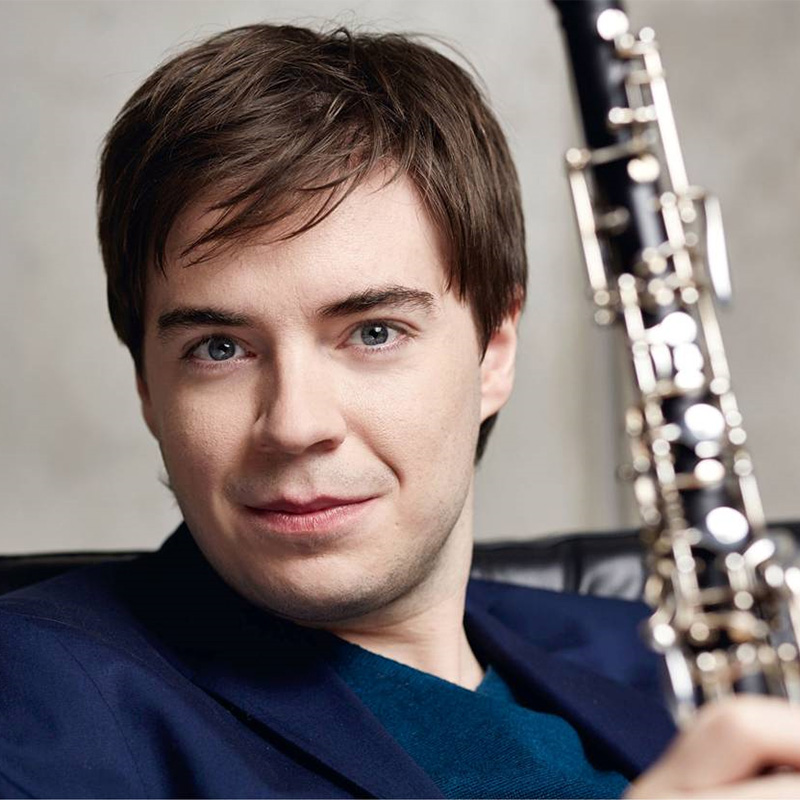
© Steven Haberland
- Show Profile
-
The two-time ECHO Award winner Ramón Ortega Quero is recognized around the world as one of the most inspiring musicians of his generation.
He received solid training from Miguel Quirós early on at the conservatory of his native city of Granada. In 2003, he was invited by Daniel Barenboim to join the East-West Divan Orchestra and soon after was introduced to Prof. Gregor Witt, with whom he studied for four years. He went on to win First Prize at the ARD Music Competition held in Munich in September 2007 and in the 2010/11 season was nominated a “Rising Star” by the European Concert Hall Organisation. He is also a fellowship award-winner of the Borletti Buitoni Trust London.
Ramón Ortega Quero has been Principal Oboist of the Bavarian Radio Symphony Orchestra since 2008, under its Chief Conductors Mariss Jansons and Sir Simon Rattle.
He appears regularly as a guest soloist with major international orchestras including the Wiener Symphoniker, Konzerthausorchester Berlin, MDR Sinfonieorchester, NDR Radiophilharmonie Hanover, Sinfonieorchester Basel, Zurich Chamber Orchestra, Vienna Chamber Orchester, Munich Chamber Orchestra, Kammerakademie Potsdam, the Sao Paulo Symphony, Prague Philharmonia, Nagoya Philharmonic Orchestra and Düsseldorfer Symphoniker. On the chamber music platform, Ramón has performed with Elena Bashkirova, Kit Armstrong, Mitsuko Uchida, amongst others at concert series in Vienna, Salzburg, Baden-Baden, Dusseldorf, Frankfurt, Berlin, Hanover, Valencia, Cologne, Vancouver and at the international festivals in Gstaad, Jerusalem, the Heidelberger Frühling, the Lucerne Festival, the Festspiele Mecklenburg-Vorpommern and the Rheingau Musik Festival. He also collaborates regularly with renowned musicians such as Janine Jansen, Guy Braunstein and Tabea Zimmermann.
In 2015 Ramón performed the world premiere of the oboe concerto Legacy, which composer Oscar Navarro dedicated to him. He made his Carnegie Hall debut in recital in 2016. Other recent highlights include concerts with the Konzerthausorchester Berlin conducted by Ivan Fischer, the Scottish Chamber orchestra under Robin Ticciati and concerts with the Taiwan National Symphony Orchestra and the Hong Kong Sinfonietta. In 2018/19 he was Artist in Residence at the Orquesta Ciudad de Granada.
Ramon’s debut CD Shadows for Solo Musica, released in October 2010, was awarded the ECHO KLASSIK as “Newcomer of the Year”. In October 2012, he won his second ECHO Klassik award for the “Chamber Music recording of the year”. His most recent releases include Variation 5 for Berlin Classics and Haydn & Stamitz for Pentatone.
-
Dwight PARRY
Principal Oboist, Cincinnati Symphony Orchestra
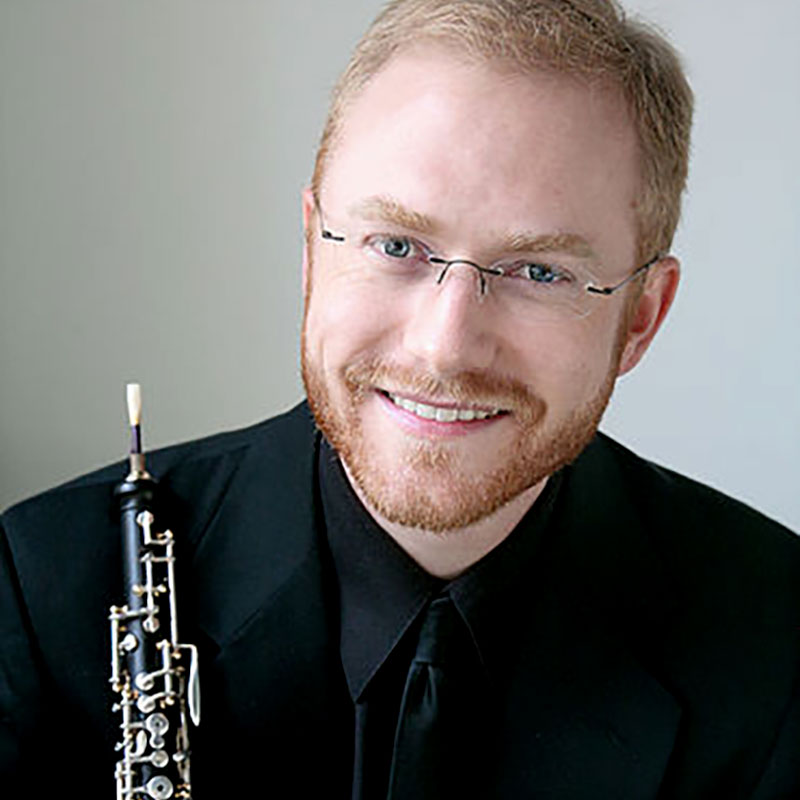
- Show Profile
-
Dwight Parry is the principal oboist of the Cincinnati Symphony Orchestra and newly appointed Assistant Professor of Oboe at Bowling Green State University. He is also Adjunct Professor of Oboe and Chamber Music at the Cincinnati College-Conservatory of Music. He is a versatile and passionate soloist, an avid chamber musician and an active advocate for new music, performing and teaching around the world. Mr. Parry's background in jazz has led him to pursue a career that spans from concert halls to the streets ofNew Orleans, where he has sat in and improvised with Dixie bands.
In May of 2022, Mr. Parry premiered a wonderful new oboe concerto, "Les Belles Heures", by Guillaume Connesson, which was commissioned by the Cincinnati Symphony Orchestra. Mr. Parry went on to give the US premiere of Carl Vine's Oboe Concerto with the Ohio Valley Symphony later that year. In recent seasons, he performed the Martinů Oboe Concerto with the CCM Chamber Orchestra and the Strauss Oboe Concerto with the Prague Summer Nights Festival in the Czech Republic. One year prior, he was a soloist with the Saint Paul Chamber Orchestra for JS Bach's Brandenburg Concertos 1&2. After collaborating with Hansjörg Schellenberger in Mexico City, he was invited to Tokyo as a judge for the 2018 and 2023 Sony International Oboe Competitions.
Mr. Parry was formerly principal oboist of the San Diego Symphony and a Fellow with the New World Symphony. He has appeared as guest principal oboist with the New York Philharmonic, Philadelphia Orchestra, Chicago Symphony, Minnesota Orchestra, San Francisco Symphony, Saint Paul Chamber Orchestra, Guangzhou Symphony, Deutsche Symphonie of Berlin and Korean Broadcasting Symphony.
Originally from coastal Southern California, he found his passion for music early on through piano, voice, and saxophone. In high school, Mr. Parry took up the oboe and decided to make a life in music. He went on to study at the Cleveland Institute of Music with John Mack and at the University of Southern California with Allan Vogel and David Weiss, a gentleman who also taught him to surf!
During the summer, he is on faculty at the Pacific Music Festival, the Interlochen Academy for the Arts and the Stellenbosch International Music Festival in South Africa. In the rare moments when he is without an oboe, he can be found attending concerts, plays, and other community events. He spends the rest of his time hiking, reading, volunteering, tossing frisbees, and creating curiosities in the kitchen.
Mr. Parry is a Lorée artist.
-
Isao TSUJI
Oboist / Professor and Assistant to Dean, Senzoku Gakuen College of Music
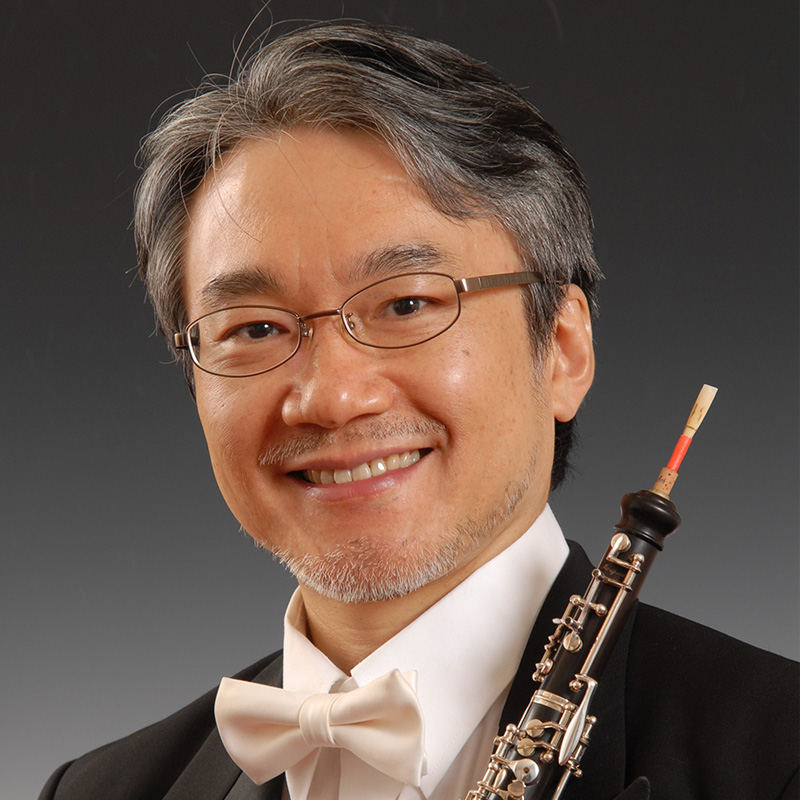
- Show Profile
-
Born in Tokyo, Isao Tsuji graduated from the Faculty of Music, Tokyo University of the Arts in 1982. The same year he won a prize at the Music Competition of Japan. While at the university, he studied under Takehiko Nitori, Yoshiko Umehara, Seizo Suzuki, Yoko Kojima, and Winfried Liebermann.
He won the second prize (no first prize) at the inaugural International Oboe Competition of Japan 1985.
The following year, he made his Tokyo debut on a high note at the inaugural “PERFORMANCE TODAY” presented by Sony Music Foundation.
In 1987, Tsuji graduated from Hochschule für Musik Detmold with a first-class honors degree. He studied under both Helmut Winschermann and Gernot Schmalfuss.
In 1992, Tsuji performed a recital at Suntory Hall (Blue Rose/Small Hall).
In 1995, he performed a recital at Hamarikyu Asahi Hall.
In 1999, he performed a recital at Casals Hall to meet with rave reviews.From 1992 through his compulsory retirement in 2021, Tsuji flourished as the principal oboist of the Yomiuri Nippon Symphony Orchestra. During his tenure, his repertoire included Joseph Haydn’s “Sinfonia Concertante in B flat major (Hob. I/105)”, the orchestrated version of Kishio Hirao’s “Sonate pour hautbois et piano” arranged by Tatsuhiko Nakahara, and Johann Sebastian Bach’s “Arioso” to name a few.
Tsuji currently serves as a professor and deputy dean at Senzoku Gakuen College of Music, a deputy professor at Kunitachi College of Music, an instructor at Nihon University College of Art, and the chairman of the Japan Oboe Association.
-
Masaru YOSHIDA
Principal Bassoonist, Yomiuri Nippon Symphony Orchestra, Tokyo
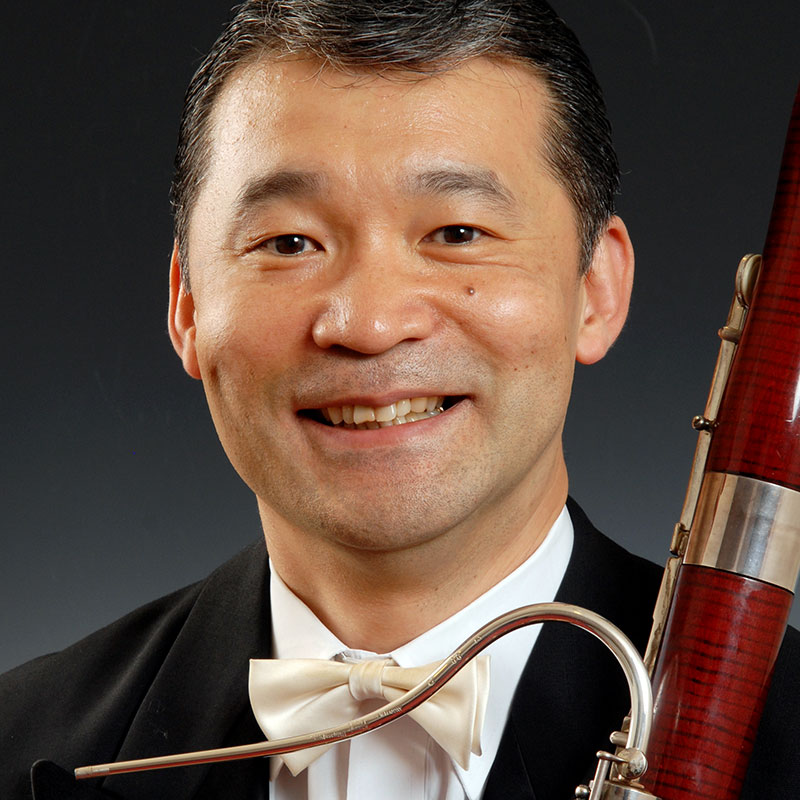
© Yomiuri Nippon Symphony Orchestra
- Show Profile
-
After graduating from the Instrumental Music course at Musashino Academia Musicae, Masaru Yoshida enrolled in the Solo Performance class at the Hanover University of Music, Drama, and Media in 1986 and studied under Klaus Thunemann. In 1987, he joined the Junge Deutsche Philharmonie (a German select student orchestra) as principal bassoonist. He also performed with the Cologne Chamber Orchestra and Deutsche Kammerphilharmonie Bremen.
Mr. Yoshida graduated from the Hanover University of Music, Drama, and Media in 1989. In the same year, he joined the Vlaamse Opera in Belgium as a principal player and also became principal bassoonist of the Yomiuri Nippon Symphony Orchestra.
Mr. Yoshida has been a regular member of the Miyazaki International Chamber Music Festival since 1998 and has performed annually as principal bassoonist with the Saito Kinen Orchestra (Seiji Ozawa Matsumoto Festival) since 2002.
Currently, Mr. Yoshida is a bassoonist with the Yomiuri Nippon Symphony Orchestra, a coach at the Seiji Ozawa Music Academy, a guest professor at Senzoku Gakuen College of Music, and an instructor at Musashino Academia Musicae.
Official Accompanists
Piano
-
Maho ISHINO
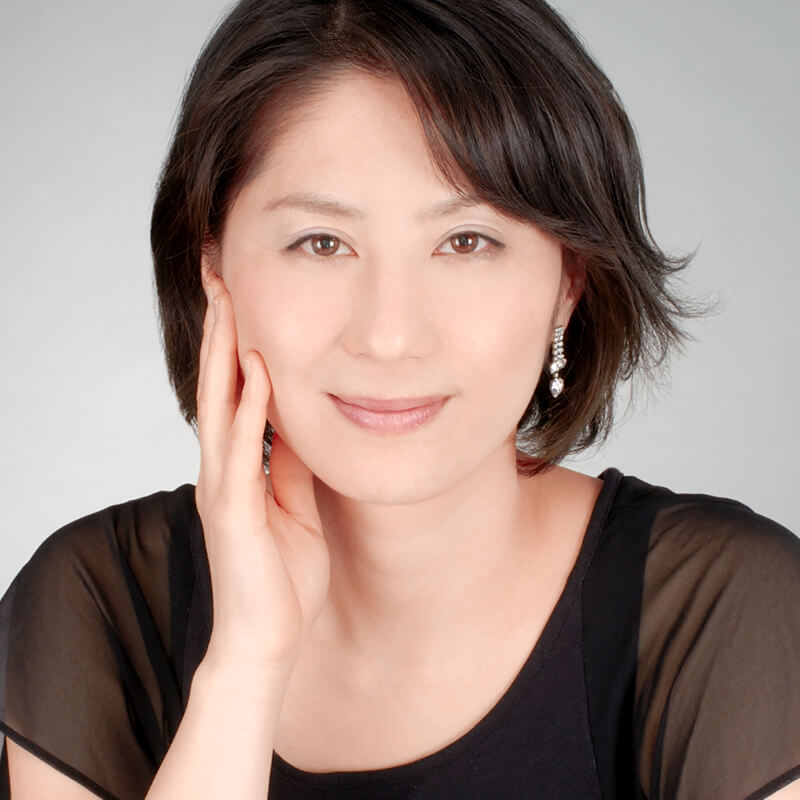
© Eiji Shinohara
- show profile
-
Maho Ishino graduated from Toho Gakuen School of Music, majoring in piano. She completed the Ensemble Diploma course of Toho Gakuen. Later, as a trainee from the Fondation Franco-Japonaise Sasakawa, she studied under Sabine Vatin at the Théâtre du Châtelet in Paris as a répétiteur. After returning to Japan, she has been active as a répétiteur and has been involved in opera performances at New National Theatre, Tokyo, BIWAKO HALL Center for the Performing Arts, Shiga, Nissay Theatre, and for the Tokyo Nikikai Opera Foundation. In addition, she has earned credibility among many musicians, as an accompanying pianist mainly serving the vocalists. In recent years, she has been flourishing in multiple fields, such as being the official accompanist of the Mt. Fuji International Opera Competition of Shizuoka, the pianist to premier the required repertoire of the The NHK All-Japan School Choir Competition, as well as the pianist of orchestras. Ishino is the pianist of the Nikikai Opera Institute and the NNT Opera Studio, the part-time lecturer at Tokyo University of the Arts, and the registered artist of Sony Music Foundation’s “Kodomo Classic” project.
-
Masako EGUCHI
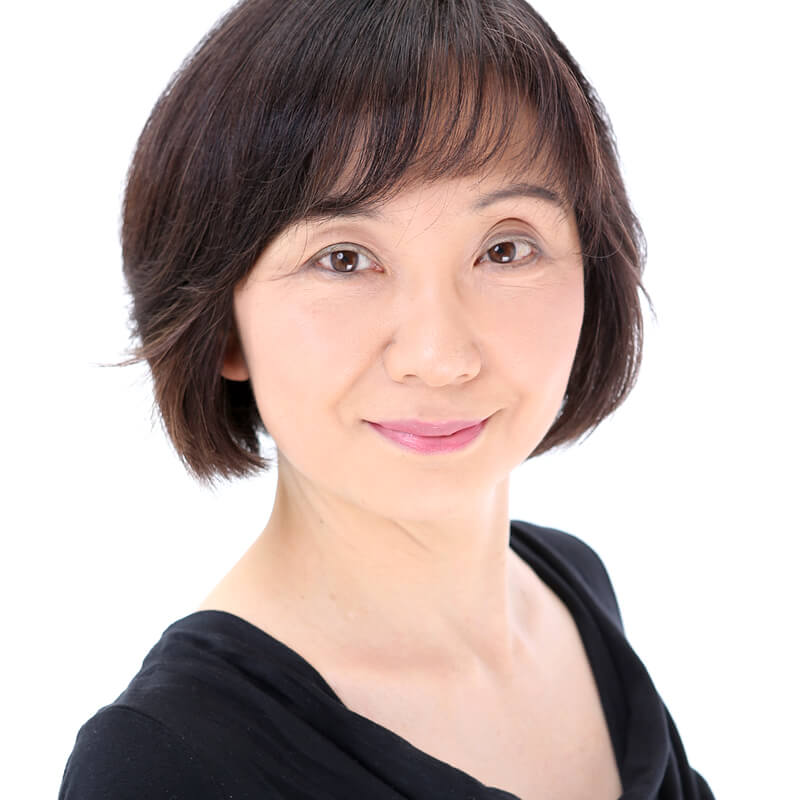
- show profile
-
Masako Eguchi graduated from the piano department of the Senzoku Gakuen Academy of Music and its graduate school. While in school, she received a scholarship to further study at the Ferenc Liszt University of Music in Hungary. Eguchi then obtained a teaching position as Korrepetitor at the same school and won prizes as the best accompanist at various wind music competitions in Hungary. She moved to Germany in 2004, where she was offered a post at the State Academy of Music and Performing Arts in Stuttgart. Because her work as Korrepetitor has earned such high praise from several different people, Eguchi not only teaches at music colleges in Stuttgart, but also in Köln, Mainz, and Bazel. She has worked with distinguished professors Ingo Goritzki, Christian Wetzel, Emanuel Abbuehl and Christian Schmitt in their classes.
As a chamber music player, Eguchi has performed in a number of concerts, including a “Lunchtime Concert2” on BBC Radio (UK), chamber music concerts on SWR Radio (Germany) and Bartók Rádió (Hungary), and the Beethoven Festival Bonn (Germany). She has performed with many well-known musicians.
Eguchi often performs with Philippe Tondre (the second prize winner at the 9th International Oboe Competition in Karuizawa, Japan), one of her chamber music partners, and their chamber music concert at the Beethoven Festival Bonn won the Beethoven Ring Prize in 2012.
She is an official accompanist for the ARD Munich International Music Competition and the Markneukirchen International Instrumental Competition. She serves as an official accompanist for many orchestra auditions, as well.
-
Mizuho OHNO
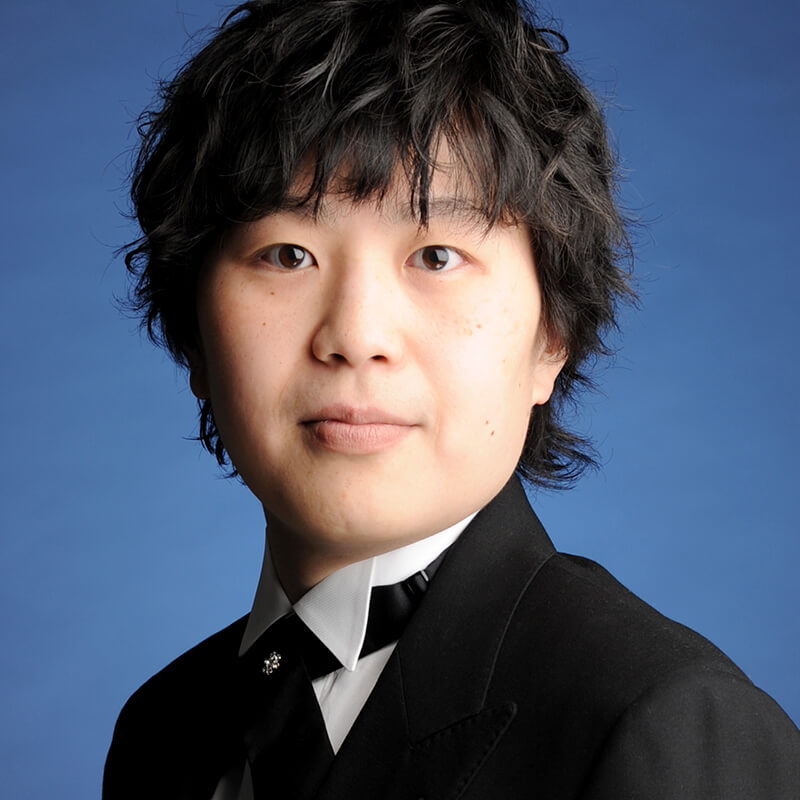
© Shigeto Imura
- show profile
-
After graduating from Musashino Academia Musicae and then completing a post-graduate course there, Mizuho Ohno completed a diploma course with highest honors at Hochschule für Musik Karlsruhe, Germany. After continually devoting himself to studies in a soloist course, he obtained the German Konzertexamen (Performer’s Diploma) with highest honors.
His awards include 3rd place in the piano solo category and 1st place in the chamber music category at the Premio Rovere d'Oro (Italy), 2nd place at the Dichler Wettbewerb (Austria), and 1st place and the Special Liszt Award at the Concours de piano de Brest (France), as well as numerous other competition awards in Japan and abroad.
He has performed as a soloist for the Musashino Academia Musicae Orchestra and for the Philharmonie Baden-Baden. In addition, he has performed at numerous concerts in Japan and abroad, including solo recitals at Tsuda Hall and Oji Hall and Hakuju Hall. He was also an accompaniment assistant at Hochschule für Musik Karlsruhe.
At the 85th Music Competition of Japan he received the Special Recognition Award from the Committee for his outstanding co-performance in the oboe category.
He served as official accompanist at “The 12th International Oboe Competition of Japan 2018 in Tokyo” organized by Sony Music Foundation.
Up until now, he has studied under F. Yamasaki, A. Tamura, J. Ganeva, K. Ganev, and K. Randalu. He is an instructor at Musashino Academia Musicae and its affiliated Music School.
-
Junko OKA
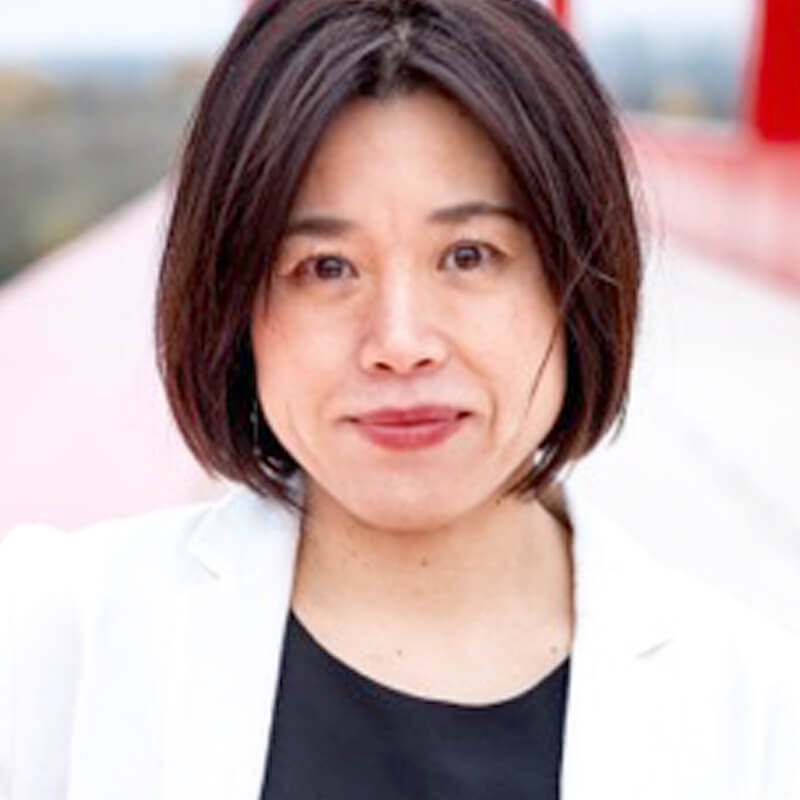
- show profile
-
Junko Oka was born in Kyoto, Japan. She started playing the piano at the age of ten. She graduated Osaka College of Music with a diploma in piano soloist and music educator. She continued her studies in Switzerland and obtained a degree in accompaniment at the Haute Ecole de Musique de Genève in the class of Jean-Jaques Balet. During her studies, she served as an accompanist assistant in the horn class of Bruno Schneider, and upon graduation, she served as an accompanist assistant in the class of oboist Maurice Bourgue.
Afterwards, she began her professional career as a chamber musician. And because of her reputation as an exceptional accompanist, she has been invited as official pianist to several major international competitions, music academy and music festivals such as the Tibor Varga International Violin Competition in Switzerland, the Xi'an International Oboe Festival in China, the Hamamatsu International Wind Instruments Academy, the Kusatsu International Summer Music Academy, the International Oboe Competition of Japan (formerly the International Oboe Competition of Japan in Karuizawa) and others.
She founded the Ensemble Minamo with bassoonist Laurent Lefèvre and engages in performance activities. And she has performed with various domestic and international artists and has engaged in diverse activities such as recordings, chamber music, recitals, TV and Radio (NHK-FM) . She has also been active as an orchestral pianist, including the Swiss Romande Orchestra, Macau Symphony Orchestra, and major orchestras in the Kansai region of Japan.
She is currently serving as an accompanist in the classes of Laurent Lefèvre and Gilbert Audin at Conservatoire à rayonnement régional de Paris and Conservatoire de Paris.
Harpsichord
-
Takahisa AIDA
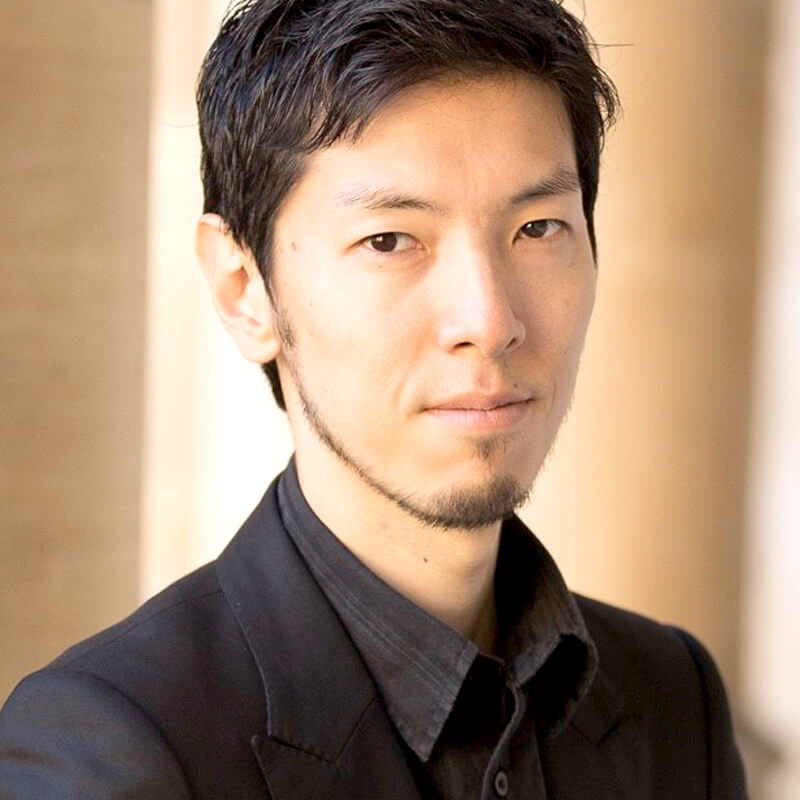
- show profile
-
Takahisa AIDA studied harpsichord at the National University of Fine Arts and Music in Tokyo, in the class of Masaaki Suzuki. He graduated with the highest distinctions in harpsichord and chamber music.
Passionate about French music, he decided to continue his studies in Paris. He then joined the National Conservatory of Music in Paris (CNSMDP), where in 2014, he obtained a master's degree in harpsichord with unanimous honors and congratulations from the jury. He studied under Olivier Baumont, Blandine Rannou, Kenneth Weiss and Noëlle Spieth.
Takahisa won the second prize (no first prize) at the 23rd Yamanashi International Early Music Competition. As a chamber musician, he won the 27th Aoyama Music Foundation Baroksaal Prize, was a finalist at the Göttingen Haendel Competition and at the Concours du Val de Loire.
He served as an overseas trainee for the Agency for Cultural Affairs, Government of Japan.
In 2021, he recorded a CD with the label “Son an Ero”, as a soloist dedicated to French music of the 17th century "AUX IDÉES HEUREUSES French style luthé".
He has played basso continuo with a number of European early music ensembles and orchestra, including Orchestre d'Auvergne conducted by Antoine Tamesti, Orchestre national de Metz Grand Est..
He is currently a harpsichord teacher at the Conservatory of Marly-le-Roi, as an harpsichord accompanist at the Conservatory of Aubervilliers.
-
Akiko KUWAGATA
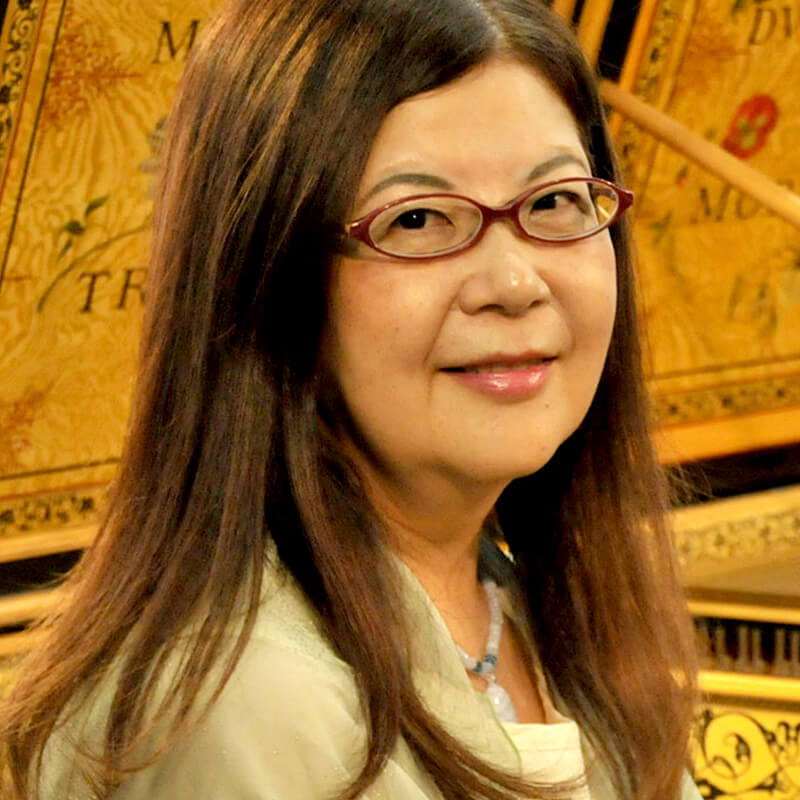
© Kiyotane Hayashi
- show profile
-
Born in Tokyo, Akiko Kuwagata completed Music High School associated with the Faculty of Music at Tokyo University of the Arts (Composition Course). Halfway through her studies at Tokyo University of the Arts, she attended the Hochschule für Musik Detmold and the Hochschule für Musik und Darstellende Kunst Stuttgart (Harpsichord Course) on a DAAD scholarship granted by the German government and obtained Dimplom-Konzertexamen. She later moved to Paris and taught at Conservatoire à Rayonnement Régional de Cergy-Pontoise CRR and Conservatoire de Musique de Chaumont, while concertizing throughout various cities in Europe.
As an overseas trainee of the Agency for Cultural Affairs of Japan, she furthered her harpsichord and organ study in Italy and Spain. In addition to winning the second prize (no first prize) at the 8th Bruges International Harpsichord Competition Musica Antiqua, she was a runner-up at various competitions such as the FEP Paris International Harpsichord Competition and the International Johann Sebastian Bach Competition.
Kuwagata returned to Japan in 2000 after residing in Europe for 17 years, and her work in Tokyo and elsewhere has been multifaceted, giving countless seminars on early music temperament and style. She studied harpsichord under Kenneth Gilbert, Rinaldo Alessandrini, the late Waldemar Döling, and she studied organ under Odile Bailleux and Jose Luis Gonzalez Uriol. Presently, she is a part-time lecturer at Tokyo University of the Arts and a lecturer at the Harmony Hall in Matsumoto. She was a jury member at the Yamanashi Baroque Music Competition in 1997, 2003, and 2007. Since 2017, she has released solo albums digitally on high-resolution audio via Dream Window Tree label: “J.S. Bach: Das Wohltemperierte Klavier”, “Meditation: Froberger’s Vision”, and “Louis Couperin: Pièces de clavecin”. Her Japanese translation of “François Couperin: L'art de toucher le clavecin” has been published from Zen-On Music Co., Ltd.
String Accompaniment
-
Fumika MOHRI, violin
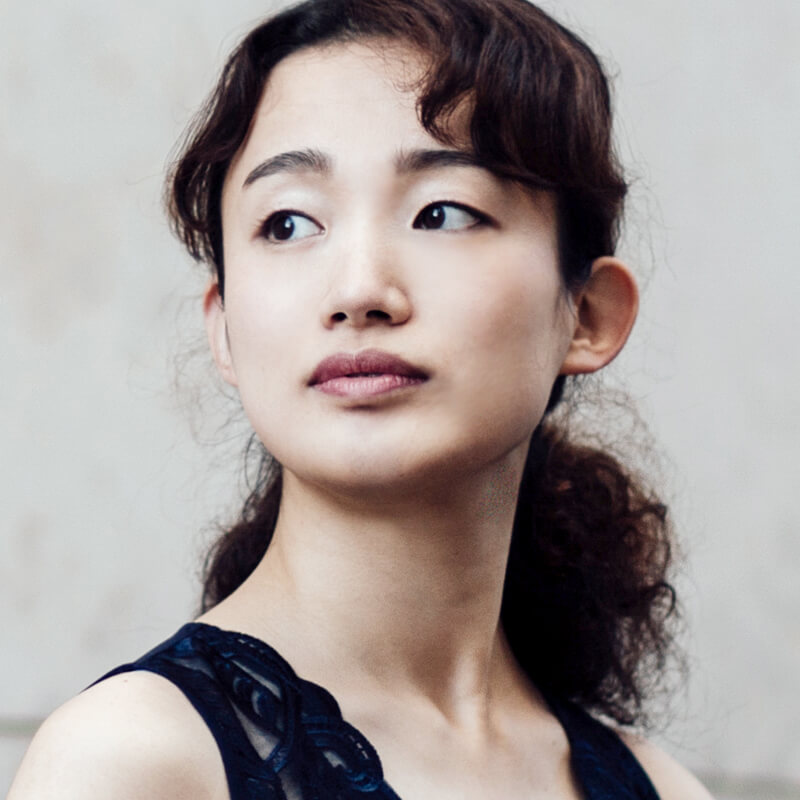
© Sihoo Kim
- show profile
-
In 2012, Fumika Mohri was the 1st Prize winner of the 8th Seoul International Music Competition. In 2015 she won the 2nd Prize of the 54th Paganini Competition and came 6th of the Queen Elisabeth International Music Competition of Belgium. She was the Third Prize Laureate of the Montreal International Musical Competition in 2019. So far she has been awarded the Kawasaki City Azalea Kagayaki Award, Best New Artist of Kyoto Aoyama Music Awards, and Hotel Okura Music Award.
As a soloist, Mohri has gained experience in performing alongside orchestras in and out of Japan, including Tokyo Philharmonic Orchestra, Brussels Philharmonic, Kremerata Baltica, and Chamber Orchestra of Europe, and renowned musicians such as Sir András Schiff, Abdel Rahman El Bacha, Tabea Zimmermann, Ilya Gringolts, Tsuyoshi Tsutsumi, and Nobuko Imai to name a few. She has also performed at the Miyazaki International Music Festival, Takefu International Music Festival, Spring Festival in Tokyo, La Folle Journée, Chanel Pygmalion Days, etc.
Mohri studied violin under Kaori Tajiri, Sachika Mizuno, and Koichiro Harada. She completed the Soloist Diploma course at Toho Gakuen College of Music and the Ensemble Academy at Senzoku Gakuen College of Music. A graduate of Keio University with a BA in literature, she studied at the Kronberg Academy and continues her study today under Mihaela Martin at Hochschule für Musik und Tanz Köln.
-
Ayako TAHARA, viola
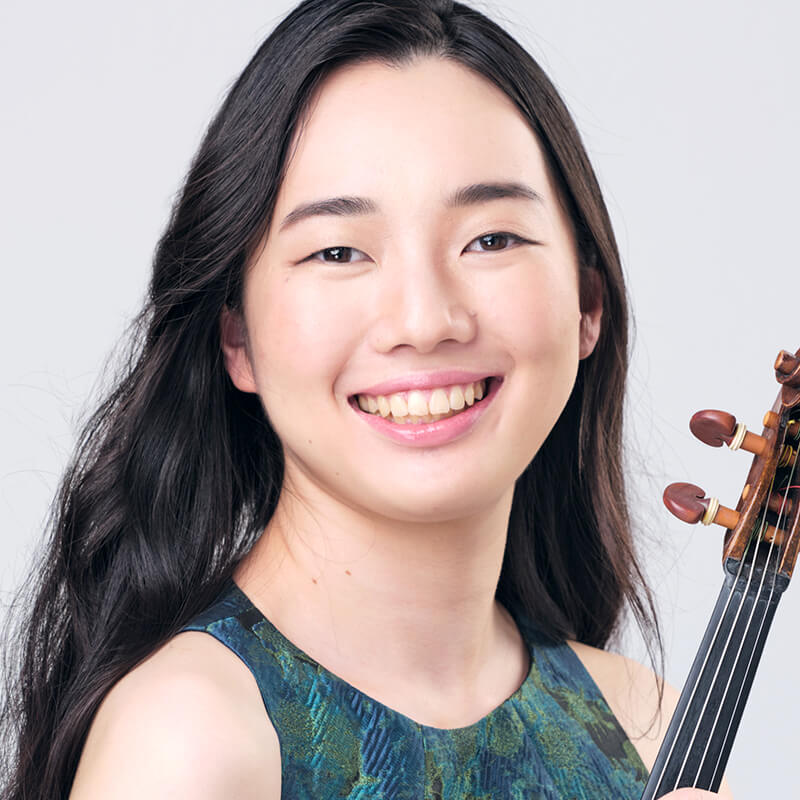
© Taira Tairadate
- show profile
-
Ayako Tahara is the winner of the 1st place and the Audience Award of the String Section of the 11th Tokyo Music Competition 2013, as well as the Grand Prize of the 9th Romanian International Music Competition.
She has been performing solo recitals regularly at home and abroad; as a soloist, she has performed alongside Yomiuri Nippon Symphony Orchestra, Tokyo Metropolitan Symphony Orchestra, Tokyo Symphony Orchestra, Tokyo Philharmonic Orchestra, etc. She is also expanding her range of activities as a chamber music player, performing with renowned artists from Japan and abroad and with orchestras as principal guest. Furthermore, she is actively involved in modern music and have been commissioned new pieces and world/Japan premieres.
Tahara has performed in TV Asahi’s “Untitled Concert”, NHK-BS’s “Classical Concert Hall”, NHK-FM’s “Recital Nova”, Miyazaki International Music Festival, and Takefu International Music Festival to name a few. She is the recipient of the 23rd Hotel Okura Music Award.
So far, she has studied at Toho Gakuen School of Music, Toho Gakuen Graduate School, Ecole Normale de Musique de Paris, and Hochschule für Musik Detmold, under Hamao Fujiwara, the late Nobuo Okada, Bruno Pasquier, and Veit Hertenstein. She has received a Paolo Antonio Testore on loan from the Suntory Foundation for Arts.
Tahara is a Music Dialogue artist and an active member of Ensemble of Tokyo, Aile String Quartet, La Luce String Octet, and Trio Rizzle.
-
Yuya MIZUNO, cello
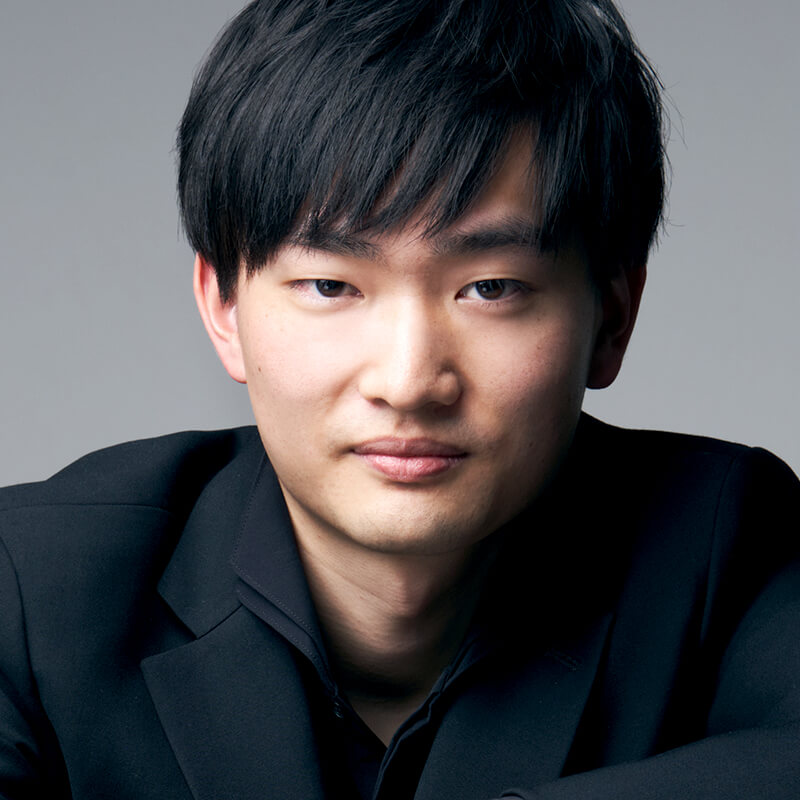
© T.Tairadate
- show profile
-
At the 89th Music Competition of Japan, Yuya Mizuno won the First Prize, Iwatani Prize (Audience Prize), Kuroyanagi Prize, and Tokunaga Prize of the cello category, and the Masuzawa Prize which was awarded to the most impressive performance. At the 13th Tokyo Music Competition, he won the First place and the Audience Award, String Section. At the 23rd Concert Maronnier 21, he won the First Prize. He also won the Best New Artist category of the 31st Aoyama Music Awards.
As a soloist, he has played alongside Tokyo Symphony Orchestra, Tokyo Philharmonic Orchestra, Japan Philharmonic Orchestra, Yomiuri Nippon Symphony Orchestra, Osaka Symphony Orchestra, and City of Kyoto Symphony Orchestra, to name a few. He has performed at the Pacific Music Festival Sapporo (PMF), Takefu International Music Festival (TIMF), Gargan Music Festival, “Recital Nova” on NHK-FM, “Untitled Concert” on TV Asahi, etc.
Mizuno participated in CHANEL Pygmalion Days 2020 and 2021. He is the member of Japan National Orchestra led by Kyohei Sorita.
He completed the soloist diploma course at Toho Gakuen School of Music on a scholarship, and studied under Miklós Perényi at Franz Liszt Academy of Music, a national music academy of Hungary. Currently he studies under Clemens Hagen at Mozarteum University Salzburg, a national music academy in Austria.
Conductor
-
Kazufumi Yamashita
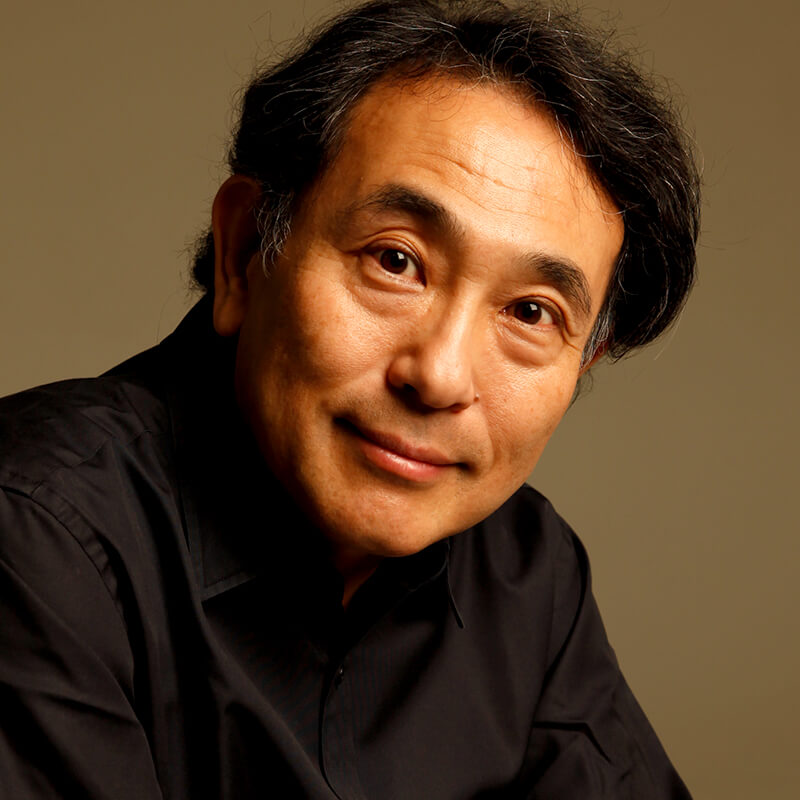
© ai ueda
- show profile
-
After graduating from Toho Gakuen School of Music in 1984, Kazufumi Yamashita studied at Berlin University of the Arts. In 1986, he won the Malko Competition for Young Conductors.
He served as an assistant to Herbert von Karajan from December 1985 to Karajan’s passing. Later, he became the principal guest conductor of Helsingborg Symphony Orchestra in Sweden. In Japan, he made his debut in 1988 conducting the NHK Symphony Orchestra, Tokyo.
He has held the positions of the principal guest conductor of Orchestra Ensemble Kanazawa and the regular conductor of the Kyushu Symphony Orchestra. He has also been the regular conductor of the College Operahouse Orchestra at Osaka College of Music. In the fall of 2005, Teizo Matsumura’s “Silence” was invited for staging at the New National Theatre, Tokyo, which stroke an impact on the Tokyo music scene. Currently, he is the honorary conductor of the College Operahouse Orchestra.
From April 2006 he was invited by the Sendai Philharmonic Orchestra as conductor, and from April 2009 thru March 2012, he served as its regular conductor. He also premiered Giuseppe Verdi’s opera “Falstaff” and Robert Schumann’s opera “Genoveva” in Japan; today he has attracted more attention than ever as the conductor who has built up steady results in both opera and orchestra.
In addition, as the professor of the Department of Conducting, Faculty of Music, Tokyo University of the Arts, he devotes himself to fostering future generations.
Yamashita is the Music Director of Chiba Symphony Orchestra, the music director of Aichi Chamber Orchestra, and the permanent conductor of Osaka Symphony Orchestra.
Orchestra
-
Tokyo Philharmonic Orchestra
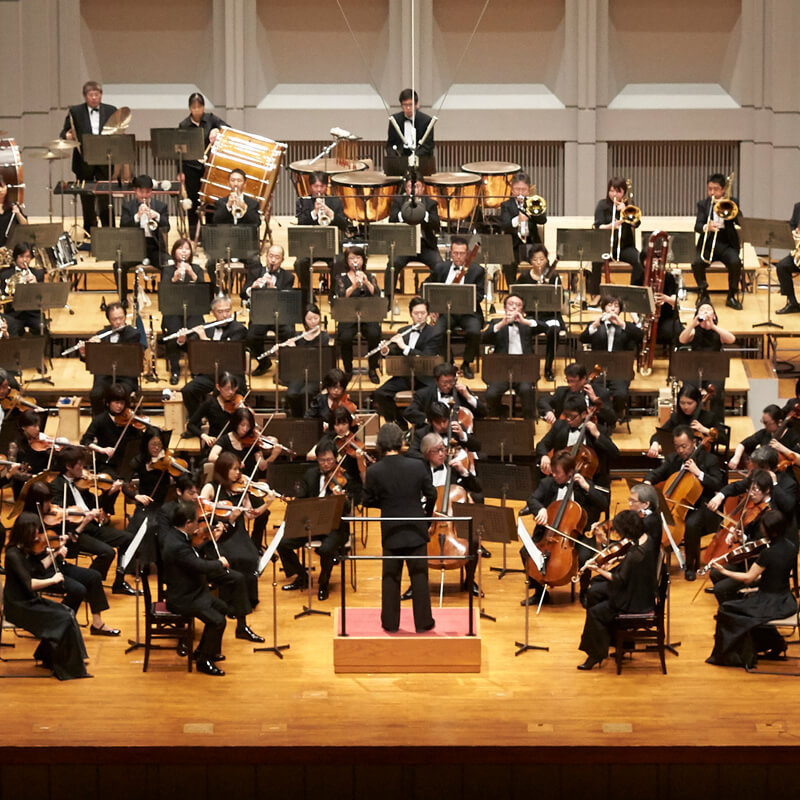
© Takafumi Ueno
- show profile
-
In 2022, the Tokyo Philharmonic Orchestra celebrates its 111th anniversary of Japan’s first symphony orchestra. With about 160 musicians, TPO performs both symphonies and operas regularly. TPO is proud to have appointed Maestro Myung-Whun Chung, who has been conducting TPO since 2001, as Honorary Music Director, Maestro Andrea Battistoni as Chief Conductor and Maestro Mikhail Pletnev as Special Guest Conductor.
TPO has established its world-class reputation through its subscription concert series, regular opera and ballet assignments at the New National Theatre, and a full, ever in-demand agenda around Japan and the world, including broadcasting with NHK Broadcasting Corporation, various educational programs, and tours abroad. While Tokyo Phil is a frequent recipient of the ACA National Arts Festival Award in Japan, its recordings have been highly acclaimed internationally, winning the "OPUS KLASSIK 2021" award in the symphonic category (20th-21st century).
TPO has partnerships with Bunkamura Orchard Hall, the Bunkyo Ward in Tokyo, Chiba City, Karuizawa Cho in Nagano and Nagaoka City in Niigata.
The Final Round Contestants
The order of performance in the Final Round has been posted.
October 8 [Sun]
※Time indicated above is subject to change.
10:00~11:45
W.A.モーツァルト:オーボエ四重奏曲 ヘ長調 K.370 (368b)
W. A. Mozart: Quartet in F major for Oboe, Violin, Viola, and Violoncello K.370 (368b)
| 開始時間 Start | 出場者 contestants |
|---|---|
| 10:00 | No.2 Leonid Surkov レオニードゥ・スルコフ |
| No.4 Alexander Krimer アレクサンダー・クリメル | |
| No.6 Ángel Luis Sánchez Moreno アンヘル・ルイス・サンチェス=モレノ | |
| — Intermission approx. 15min — | |
| 11:00 | No.10 Kaguya Enoki 榎かぐや |
| No.11 Hyun Jung Song ヒョンジョン・ソン | |
| No.14 Javier Ayala ハビエル・アヤラ | |
— Intermission approx. 90min —
13:15~16:45
R.シュトラウス:オーボエ協奏曲 ニ長調 AV144
R. Strauss: Concerto in D major for Oboe and small Orchestra AV144
| 開始時間 Start | 出場者 contestants |
|---|---|
| 13:15 | No.2 Leonid Surkov レオニードゥ・スルコフ |
| No.4 Alexander Krimer アレクサンダー・クリメル | |
| No.6 Ángel Luis Sánchez Moreno アンヘル・ルイス・サンチェス=モレノ | |
| — Intermission approx. 30min — | |
| 15:15 | No.10 Kaguya Enoki 榎かぐや |
| No.11 Hyun Jung Song ヒョンジョン・ソン | |
| No.14 Javier Ayala ハビエル・アヤラ | |
18:30~ 表彰式 The Prize and Award Presentation Ceremony
The Second Round Contestants
Piece titles are abbreviated. Please check the bottom of the page for details.
October 3 [Tue]
| 時間帯 time zone | 出場者 contestants | 1曲目 1st piece |
2曲目 2nd piece |
3曲目 3rd piece |
| 11:15-12:15 | 1. Sofía Zamora Meseguer (Spain) | Couperin No.11 | Martinů | Doráti |
| 12:15-13:15 | 2. Leonid Surkov (Russian Federation) | Couperin No.7 | Mozart | Skalkottas |
| 休憩 intermission (90分/90min) |
||||
| 14:45-15:45 | 3. Inmaculada Veses Gil (Spain) | Couperin No.7 | Poliuto | Mozart |
| 15:45-16:45 | 4. Alexander Krimer (Germany) | Couperin No.11 | Mozart | Hosokawa |
| 休憩 intermission (10分/10min) |
||||
| 16:55-17:55 | 5. Ryoko Yamada/山田涼子 (Japan) | Bach Sonata | Doráti | Martinů |
October 5 [Thu]
| 時間帯 time zone | 出場者 contestants | 1曲目 1st piece |
2曲目 2nd piece |
3曲目 3rd piece |
| 11:15-12:15 | 6. Ángel Luis Sánchez Moreno (Spain) | Mozart | Couperin No.11 | Poliuto |
| 12:15-13:15 | 7. Yijea Han (South Korea) | Mozart | Couperin No.11 | Skalkottas |
| 休憩 intermission (90分/90min) |
||||
| 14:45-15:45 | 9. Shuhei Nakamura/中村周平 (Japan) | Couperin No.11 | Skalkottas | Martinů |
| 15:45-16:45 | 10. Kaguya Enoki/榎かぐや (Japan) | Partita g-moll | Mozart | Poliuto |
October 6 [Fri]
| 時間帯 time zone | 出場者 contestants | 1曲目 1st piece |
2曲目 2nd piece |
3曲目 3rd piece |
| 11:15-12:15 | 11. Hyun Jung Song (South Korea) | Bach Sonata | Doráti | Mozart |
| 12:15-13:15 | 13. Ilyes Boufadden Adloff (France) | Partita g-moll | Mozart | Doráti |
| 休憩 intermission (90分/90min) |
||||
| 14:45-15:45 | 14. Javier Ayala (Spain) | Partita a-moll | Poliuto | Martinů |
| 15:45-16:45 | 15. Myriam Navarri (Italy/Germany) | Bach Sonata | Doráti | Martinů |
*No.8 and No.12 have declined.
<A>
Bach Sonata▶
J.S.バッハ:ソナタ ト短調 BWV1030b [3楽章のみ繰り返しなし]【出版社:Peters】
J. S. Bach: Sonate g-moll BWV1030b [No repeats for the 3rd Movement] [Publisher: Peters]
Partita a-moll/Partita g-moll▶
J. S. バッハ:無伴奏フルート(オーボエ)のためのパルティータ イ短調 BWV1013(ト短調で演奏すること) イ短調またはト短調で演奏すること[全楽章とも最初の繰り返しのみ]
J. S. Bach: Partita a-moll für Flöte (oboe) solo BWV1013 version in g-moll Both versions in a-minor and in g-minor are acceptable. [1st repeats only in all movements]
Couperin No.7/Couperin No.11▶
F.クープラン:《趣味の融合 または新しいコンセール集》よりコンセール第7番、または第9番、または第11番 [チェンバロ伴奏、繰り返し任意] 【出版社:Fuzeau】
F. Couperin: “Les Goûts réunis”ou “Nouveaux Concerts”with Harpsichord concert No.7 or No.9 or No.11 [Accompanied by the harpsichord, repeats optional] [Publisher: Fuzeau]
<B>
Doráti▶
A.ドラティ:協奏的二重奏曲【出版社:Boosey & Hawkes】
A. Doráti: Duo concertante [Publisher: Boosey & Hawkes]
Skalkottas▶
N.スカルコッタス:ソロ・オーボエとピアノ伴奏のためのコンチェルティーノ【出版社:Margun】
N. Skalkottas: Concertino für oboe solo und Klavierbegleitung [Publisher: Margun]
Poliuto▶
A.パスクッリ:ドニゼッティ「ポリウート」の主題による幻想曲【出版社:Musica Rara (Breitkopf & Härtel) 】
A. Pasculli: Fantasia sull’opera “Poliuto”di Donizetti [Publisher: Musica Rara (Breitkopf & Härtel) ]
Hosokawa▶
細川俊夫:《スペル・ソング―呪文のうた―》オーボエのための「第11回 国際オーボエコンクール・軽井沢」のための公益財団法人ソニー音楽財団委嘱作品【出版社:Schott】
T. Hosokawa: Spell Song for oboe Commissioned by Sony Music Foundation for “THE 11th INTERNATIONAL OBOE COMPETITION OF JAPAN 2015 in Karuizawa” [Publisher: Schott]
<C>
Mozart▶
W.A.モーツァルト:オーボエ協奏曲 ハ長調 K.314(285d)[暗譜、ピアノ伴奏]【出版社:Breitkopf & Härtel (Henrik Wiese校訂) / Henle (Ingo Goritzki校訂) / 最新のBärenreiter (Frank de Bruine校訂)* 】
W. A. Mozart: Oboe Concerto in C major, K.314 (285d) [Should be performed by memory. Accompanied by the piano.] [Publisher: Breitkopf & Härtel (Revised by Henrik Wiese) / Henle (Revised by Ingo Goritzki) / the latest edition of Bärenreiter (Revised by Frank de Bruine)* ]
Martinů▶
B.マルティヌー:オーボエ協奏曲 H.353【出版社:Max Eschig(M.Bourgue& G.Porat校訂)】
B. Martinů: Concerto pour hautbois avec petit orchestre, H.353 [Publisher: Max Eschig(Revised by M. Bourgue & G. Porat)]
コンクール観覧についてのご注意; 審査や演奏を妨げる行為はご遠慮ください。
演奏中の入退場不可。未就学児入場不可。
係員の指示に従ってご観覧下さいます様、皆様のご協力をお願い致します。
‐ Kindly keep away from any behavior to disturb performance and judgement.
Please do not leave or enter the hall while music is being played.
Pre‐school children are not admitted in the hall. Kindly follow the instruction of the hall staff.
The First Round Contestants
| Carlos Andrés (Spain) |
| Javier Ayala (Spain) |
| Saran Bae/裵 紗蘭 (South Korea) |
| Pablo Balaguer Ortiz (Spain) |
| János Benedek Wollenweber (Germany) |
| Ilyes Boufadden Adloff (France) |
| Ye Eun Cho (South Korea) |
| Pedro Augusto Dias Moreira (Portugal) |
| Eleanor Louise Doddford (UK) |
| Kaguya Enoki/榎かぐや (Japan) |
| Mariano Esteban Barco (Spain) |
| Joana Filipa Fernandes Soares (Portugal) |
| Iria Folgado Dopico (Spain) |
| Yijea Han (South Korea) |
| Ingun Hwang (South Korea) |
| Omer Idan (Israel) |
| Joonha Jun (South Korea) |
| Hyun Jung Song (South Korea) |
| Juhyeok Kim (South Korea) |
| Yeeun Kim (South Korea) |
| Kana Kobayashi/小林加奈 (Japan) |
| Alexander Krimer (Germany) |
| Yuka Kurihara/栗原優風 (Japan) |
| Yeon jae Lee (South Korea) |
| Hyunae Lim (South Korea) |
| Lucas Martínez Riaza (Spain) |
| Francesca Mattioli (Italy) |
| Meri Musaev (Georgia) |
| Shuhei Nakamura/中村周平 (Japan) |
| Myriam Navarri (Italy/Germany) |
| Ukko Pietilä (Finland) |
| Fabian Sahm (Germany) |
| Ángel Luis Sánchez Moreno (Spain) |
| Robert Schina (Germany) |
| Clara Maria Schweinberger (Germany) |
| Anna Štrbová (Slovakia) |
| Leonid Surkov (Russian Federation) |
| Shota Takahashi/高橋 鐘汰 (Japan) |
| Georgij Tarasov (Italy) |
| Frauke Tautorus (Germany) |
| Michael Tian Liu (Australia) |
| Inmaculada Veses Gil (Spain) |
| Max Vogler (Germany) |
| Yu-Tse Wang (Taiwan) |
| Ryoko Yamada/山田涼子 (Japan) |
| Hsin-pei Yu (Taiwan) |
| Sofía Zamora Meseguer (Spain) |
| Dian Zheng (China) |
(in alphabetical order)


